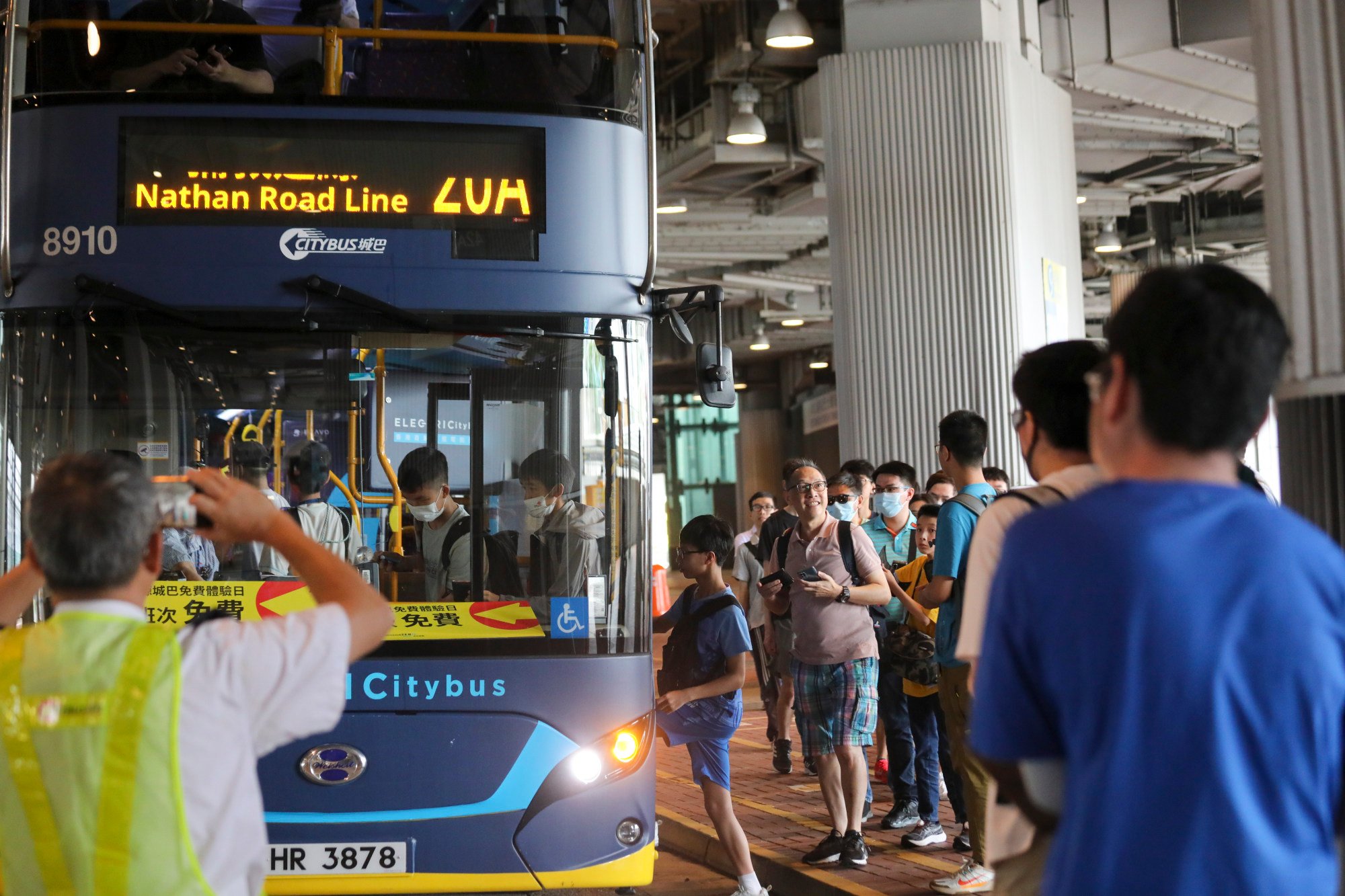
Hong Kong-listed Hans Energy to become majority shareholder in Citybus parent to accelerate hydrogen-powered transport
- Hans Energy has acquired 54.44 per cent of the shares in Citybus parent Bravo Transport for HK$2.72 billion (US$348 million)
- Company’s ‘strategic development of the hydrogen industry’ aligns with Citybus’s net-zero emissions goals, CEO says
Hong Kong-listed Hans Energy has acquired a majority stake in Bravo Transport, the parent company of the city’s largest bus operator Citybus, in a move the company said will accelerate adoption of hydrogen-fuelled vehicles and help Hong Kong’s net-zero transition.
Hans Energy acquired 54.44 per cent of the shares in Bravo for HK$2.72 billion (US$348 million), giving it 70 per cent ownership after the completion of the transaction, the company said on Friday.
Hong Kong-based private-equity firm Templewater, which owns the remaining 30 per cent, acquired Bravo Transport and Citybus in 2020. It will become a minority shareholder of Hans Energy, with around 6.59 per cent of the equity shares issued at HK$0.7961 per share.
“This acquisition aims to vertically integrate the energy supplier and key end-user,” said Hans Energy CEO Yang Dong. Hans Energy will use its expertise in petroleum product trading and logistics to reduce fuel costs for Citybus, while its “strategic development of the hydrogen industry” aligns with Citybus’s net-zero emissions goal, he said.
Hans Energy, which trades refined oil and petrochemical products and owns a loading terminal, jetties and fuel storage tanks in Dongguan, Guangdong province, is transitioning its focus from the traditional energy sector to renewable energy.
The stake acquisition will cement the long-term prospects and future business continuity for Citybus, as it will become part of a listed company on the main board of Hong Kong stock exchange, said Cliff Zhang, Templewater’s chairman and CEO.
Hans Energy will also have the right to acquire the remaining 30 per cent of Bravo Transport from Templewater within the next five years, and Templewater has the option to sell its shares to Hans Energy between 2029 and 2031, according to Hans Energy.
The transport sector contributed 19.7 per cent of the city’s carbon emissions in 2020, the second largest portion after power generation at 60.4 per cent. Hong Kong plans to reach carbon neutrality by 2050 according to its climate action plan announced in 2021, and electrification of vehicles and ferries is a top priority in that net-zero strategy.

Zero-emissions vehicles based on hydrogen fuel cells, which only emit water, have huge potential in heavy transport such as buses and trucks, and could complement battery-powered electric vehicles to help decarbonise the sector.
In 2021, the government set up an interdepartmental working group to facilitate the introduction of hydrogen into the city’s energy mix. It aimed to launch pilots of fuel cell buses and heavy vehicles by 2024.
Bravo Transport is valued at HK$5 billion, with a media business in addition to its main business in franchised and non-franchised bus operations. The company operates more than 1,700 buses across Hong Kong Island, Kowloon and the New Territories and carries over 1 million people per day.

